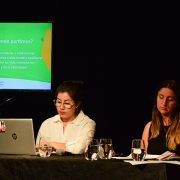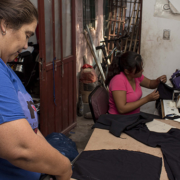The interruption of pregnancy as a health problem: approved the first university chair of the country
The Board of Directors of the Faculty of Medicine of the National University of Rosario (UNR) voted, at the beginning of May, to incorporate an optional subject that addresses the practice of termination of pregnancy in cases permitted by law, such as Public health problem. From FUNDEPS, we celebrate the resolution.
“Below, we offer a google translate version of the original article in Spanish. This translation may not be accurate but serves as a general presentation of the article. For more accurate information, please switch to the Spanish version of the website. In addition, feel free to directly contact in English the person mentioned at the bottom of this article with regards to this topic”
The Faculty of Medicine of the UNR will be the first to have a chair on termination of pregnancy. Unanimously, the Board of Directors approved the incorporation of a matter that addresses the legal interruption of pregnancy (ILE), that is to say, in cases permitted by law, from a public health perspective, with the objective of training and / Future health professionals.
The subject will be optional and will seek, among other questions, to problematize medical students about the legal framework in force in Argentina, the regulation of conscientious objection and the process of care and attention of women at different levels of the situation Of the interruption of pregnancy. It will include counseling on contraceptive methods and teaching the use of available medical technologies to ensure an ILE.
Discontinuation of pregnancy is a public health problem as it represents the leading cause of maternal death. According to the Shadow Report presented by ANDES, CELS and FEIM, among other organizations, in Argentina, between 460,000 and 600,000 clandestine abortions are practiced annually before the Committee against Torture. Over the past 30 years, complications from unsafe abortions have been the leading cause of maternal mortality and account for one-third of all deaths. In this sense, it is urgent that the State guarantee a training in accordance with the law in force, which will enable medical professionals to approach the problem from a human rights perspective.
From FUNDEPS we support the initiative. It is the duty of the State to guarantee the conditions for women to enjoy the full enjoyment of their sexual and reproductive rights, and we consider that the training of our and our health professionals in this field is essential.
Author
Antonela Vanini
Contact
Virginia Pedraza, <vir.pedraza@fundeps.org>











